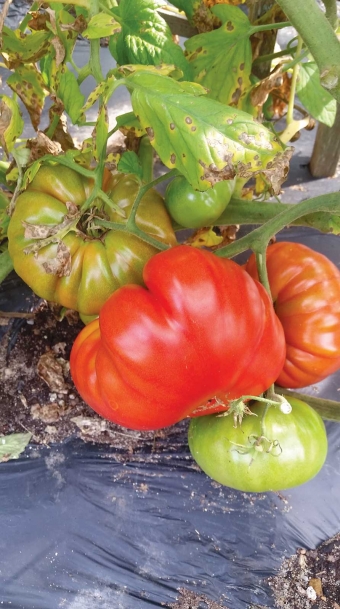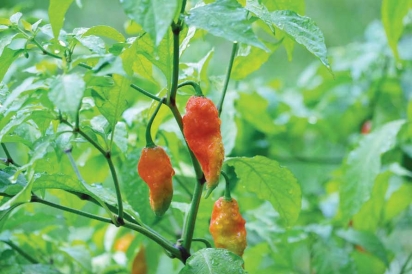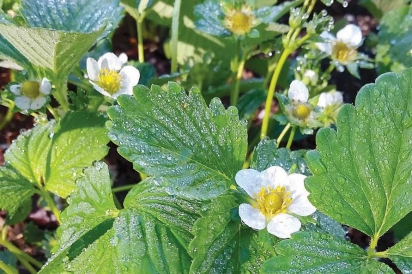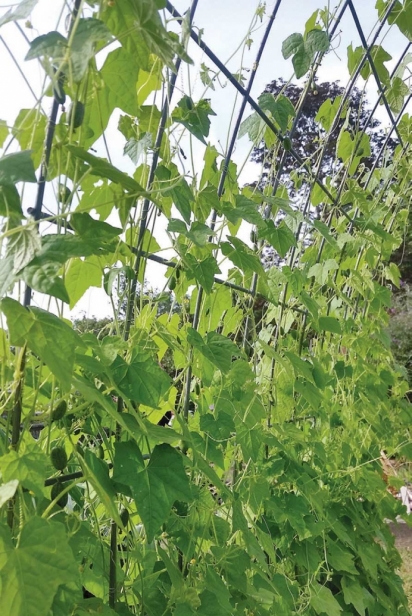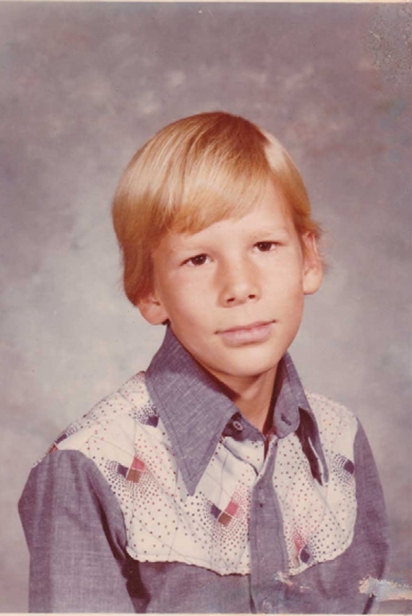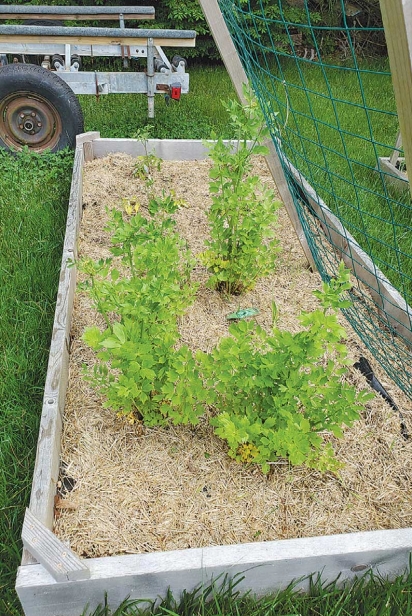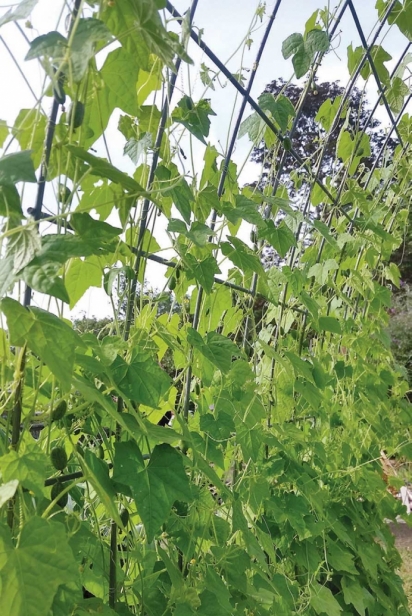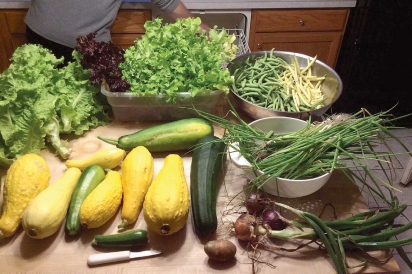Gardening for the Soul
When you ask a person who has lived most, if not their entire, life on Cape Cod, what the smell is that reminds them of home, it is almost always going to be the same answer. The sea. The smell of the ocean. The salt air that lets them know they are home if they’ve been away. Perhaps the smell of the marsh. If they are in a joking mood it will be the marsh at low tide. The smell of home, though, is always tied to the scent of our nearness to the ocean.
I moved to Cape Cod when I was six. I have only faint memories of my life before that, which means for all intents and purposes I am a Cape Codder. I know how to get from Chatham to Woods Hole and only cross Route 28 once. I know where to catch the best blue crabs in the summer. I know the coolest forest spot to kiss a girl. I can find at least three species of snake in less than one day. Need directions to an obscure swimming hole? I’m your guy. I’ve cooked in your favorite restaurants. I got married in a church in Yarmouthport and divorced in a court in Barnstable. I’ve owned three businesses in Barnstable County. I’ve lived the most important parts of life on this broken archipelago.
Here’s the thing, though. The salt air doesn’t move me. The tanginess of a stormy day doesn’t bring a great emotional bearing to my heart. The smell that does? The scent that makes me feel like I am where I belong? Cow shit.
I was born in Vermont. My family goes back a long way there. My cousin Gerard won the best maple syrup in the world award two times. My uncle was a state Senator and prominent lawyer. My grandmother died when I was six and we came to Cape Cod. I would like to say that I had a glorious childhood on the beaches and swimming holes of this place tourists cherish. I did not. I had a single mom who struggled with finances and a series of tough boyfriends and marriages. My childhood on Cape Cod was pretty awful.
My weeks and months spent in the care of relatives in Vermont, though? Those were the days of positive memories. Walking barefoot through cow patties on my way to catch newts in the cow pond. Netting trout in the stream and Aunt Eunice frying them up for lunch. A black bear getting tipsy on fermented apples in the back yard. Helping Uncle Ralph and Cousin Gerard milk the cows, feed the chickens and take care of the pigs. I participated in the slaughter of a pig when I was just nine years old. It didn’t bother me a bit. When I shot my first and only deer though? It didn’t feel right. Picking wild strawberries. Swimming in Miller Pond. Exploring the old copper mine. Fabulous memories of a childhood whose best experiences were somewhere else.
Slowly that went away. Uncle Ralph died of a massive heart attack in the entrance of the grocery store. Aunt Eunice succumbed to Alzheimer’s and had to enter a care facility. Gerard died of cancer. All the things that happen in the progression of life.
On my end, I grew up, got married, had kids, a career, and started a business (three of them). And then came the winter of my discontent. That lasted four years.
As a Vermonter you would think I love snow. Skiing, sledding, cross country winter hiking? Ugh! I hate almost everything about winter. The cold, the darkness, the snow, the boogers running freely out of my nose that I am unable to stop. Hate it. I would much prefer any season where I can take my clothes off.
2019 is the year my cousin died. It is also the same year I got divorced and discovered my son had cancer. It was a dark time. I was depressed and felt like a failure. The darkness that winter was physical and metaphorical. In the summer of 2020 I went camping in Quechee, VT. A tradition I felt I needed to continue. While there, I took a trip out to the Stevens family farm as I always did and discovered my cousin Ginny had bought it. That was nice. It was still in the family.
On the farm there is a HUGE rhubarb plant. It’s been growing for fifty plus years. I asked Ginny if I could take a small root cutting to plant at my house. “Of course,” she said. I took it home, dug up the rhubarb I already had, and planted that root cutting in its place.
My son survived the cancer and the COVID infection that came after. The winter of 2020-2021 was not kind to him or to my mental state. Gardening is my therapy. I love to plan the garden, pick something strange to grow, plant seeds and document the progress. In the spring of 2021, I moved some leaves around and there, and just visible through the earth was the first white crowning of the rhubarb from Vermont. In that moment, I felt a connection to that place, that past, MY past, and realized that even when broken away from its original state, transplanted into foreign soil, and frozen solid all winter, it would still become the beautiful plant and wonderful fruit it was meant to be. That meant I could do the same thing. And I am working on that still.
This year will be the third year of my permaculture in my raised beds. No tilling. No turning. The layering of last year’s grass cuttings (I have a fully organic, non-pesticide, non-insecticide, clover lawn), the vestiges of the dead garden plants, chopped hay and sprinklings of mycelium to emulate the Earth’s natural processes. The first year it was not so good. I don’t think the nutrients had reached down into the soil. Last year was better. It even smelled earthier. My job as Executive Chef at Napi’s kept me away and the lack of maintenance kept the garden from reaching its full potential. This year, I think, will be the year. When I push into the soil I can see the fine, white, cobwebby traceries of mycelium. This is a key indicator of healthy soil. I see lots more earthworms. I’ll actually be living at my house this year instead of at sea or a job elsewhere. I’ll be able to weed, trim, thin, and do the things that a garden needs done. I’m looking forward to the first snow peas and lettuce greens, the tatsoi that I’ll use sautéed in a poke bowl. Fabulous Cherokee Purple tomatoes and burpless cucumbers. Strawberries, blueberries, raspberries, asparagus, green beans, zucchini, summer squash, broccoli and, by God, I will get a ripe watermelon this year if it kills me.
I’m in a new relationship. One with children involved. Together we have started planning what to grow. They’re the reason I’m trying the elusive watermelon again. My fifth time. I have yet to get a ripe one. For them I’ll try again. They love looking at the seed catalog with me. They love learning about vegetables they’ve never seen. With any luck and some patience, I am fairly confident that they will try the vegetables they grow. They won’t touch a green bean now. If they grow it, though? I think I’ve got a shot.
The entire process of gardening is very therapeutic to me. From the planning and layout of vegetables to the day-to-day maintenance to the harvest, it brings a sense of order and routine to me. As I’ve said here before, when I garden I interact with lots of my neighbors. With the “end” of COVID, I’m looking forward to meeting even more of them. The dogs they walk as well.
Gardening is visceral and real and natural. It forces you outside and gives you something concrete almost from the start. When you make a salad with something you’ve grown yourself it elicits a great sense of accomplishment. This is a great thing, gardening. It connects us to beginning of civilization, when we learned how to grow crops and stay put and build cities and have knowledge, art and culture. None of that was possible without the ability to grow our own food.
I’ve got some tricks I’ve learned over the years. I much prefer heirloom tomatoes over hybrids. The flavor just can’t be beat. The nature of an heirloom also means that you won’t get as much fruit if you stick to conventional means. You can, however, trick an heirloom tomato. You must trim the plant properly. Remove suckers and stake it well. When it starts to flower, pick them all off. Every day. Get your cup of coffee, put on your headphones and WCAI (if you are reading this then Elspeth Hay is right up your alley), and pick the flowers off your tomato plants like ticks off of your dog’s ears. Don’t miss one. The plant, not being smart, will only send signals to create more energy, more flowers to be able to produce more fruit. Keep picking the flowers until the end of June and by the end of July your plants will be eight feet tall and you could hide a Senator’s ego in them. Then, let them flower and fruit. This is where the good staking comes in. Your plant is going to produce lots of big tomatoes. If not staked properly the plants will literally fall over and snap. For truly gigantic tomatoes only let three or four fruits develop. All those leaves you forced the plant to grow are energy factories furiously producing the things needed to reproduce. You will be amazed at the end result. You will have to wait longer to get your fruit. Your neighbor may tease you throughout July with their paltry tomatoes, but in the end, you’ll be comparing your Bentleys to their Yugos.
Find an Amish pickle recipe. Use green cherry tomatoes instead of cucumbers. You’ll want to remove modern conveniences from your life for just a few seconds.
Make an arched trellis out of cow fencing to grow butternut and spaghetti squash on. It makes a glorious, leafy tunnel the kids love.
Grow something that you never thought would even grow here. I’ve tried artichokes, none produced. Okra was interesting: six plants, three fruit. Peanuts were a bust. The blue potatoes were pretty amazing and the Asian long beans looked really cool and tasted better.
Share, share, share. The bounty of your garden is something to be proud of and I firmly believe, shared.
Soon, the first white crown of the rhubarb will appear under the mulch I laid down last fall. It is the harbinger of a new season, new food, both for the plate and for the soul. A season of meeting and making new friends. One of enjoying the fruits of my labor and sharing with my neighbors. Soon, I’ll be making rhubarb crisp using my Aunt Eunice’s recipe and planning my yearly camping trip to Vermont. Soon, my happy place, geographically and mentally, will be in view.
Jeff Avery is the Chief Adventure Specialist and Owner of Cape Cod Learning Tours, a hands-on science exploration company. Currently sailing as a Second Cook and Chief Steward aboard NOAA research vessels in far flung parts of the world, he’s traveled to 30 countries on five continents and always tries to bring a sense of wonder with him and back again. You can follow his adventures on TikTok (capecodnaturalist) and Instagram (capecodexplorer). Jeff is adamant about supporting local non-profit organizations and would love if you could donate time or money to the Family Table.


